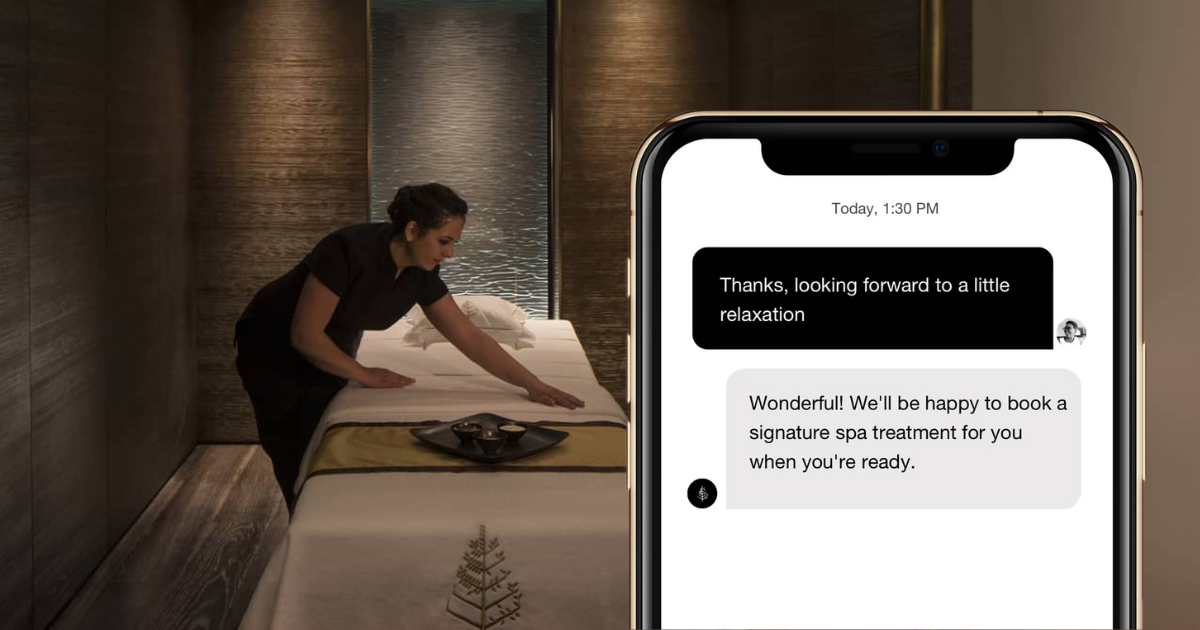Artificial Intelligence Will Never Replace the Need for Human Connection in Luxury Travel
AI will never replace the need for human connection in luxury travel, says Virtuoso’s CEO Matthew Upchurch.
The advent of artificial intelligence is undeniably reshaping industries across the board, and travel is no exception. As I reflect on its growing influence on the luxury travel landscape, I find myself both intrigued and resolute. AI is rewriting the rulebook on how we interact with technology and consume information. It can streamline the more predictable aspects of travel—efficiently handling tasks like booking, searching for flights, or offering general recommendations. But while AI can process data at lightning speed, it lacks one essential quality that defines truly exceptional travel: empathy.
In the travel industry, AI is already helping us in ways that were unimaginable just a decade ago. It’s automating the predictable, so that we can humanise the exceptional. Routine tasks like processing bookings, providing instant recommendations and even personalising certain elements of a trip based on data. We’ve seen Virtual Travel Assistants enhance luxury travel experiences through management of flight bookings, scheduling private tours or arranging transportation, all in real-time. Four Seasons, for example, has an AI-powered chatbot that communicates in over 100 languages to assist guests with requests. We’ve also seen luxury hotels, airlines, and private airports implement AI-based biometric systems to streamline check-ins, where facial recognition helps eliminate waiting times, allowing for a more seamless check-in process for VIP lounges, or high-end hotels. Marriott hotels in China, for example, are experimenting with facial recognition to bypass the traditional check-in process. High-end hotels are also incorporating AI-powered voice assistants like Alexa for Hospitality, specially designed to control room settings based on a guests’ personal preferences. These systems can remember guest preferences from previous stays and automatically adjust features accordingly. Wynn Las Vegas has implemented voice-activated AI to provide guests with control over their suite’s lighting, curtains and even music.

From facial recognition and biometric check-ins to augmented reality pre-trip experiences, these efficiencies are important and will continue to enhance the way we operate. However, as technology evolves, we must remember one fundamental truth: while AI can handle the “what,” only humans can truly understand the “why” behind someone’s journey.
At Virtuoso, we’ve always believed that travel is deeply personal. It’s about more than moving from point A to point B; it’s about crafting experiences that resonate on an emotional level. This is where AI falls short. While it can assist in creating convenience, it cannot replace the nuanced, human touch that makes a trip extraordinary. The relationships our advisors cultivate with their clients—built on trust, understanding and intuition, over multiple cycles—are irreplaceable. These are elements AI will never be able to replicate.

The rise of AI in travel will, in fact, make human connection more valuable than ever.
As consumers begin to question the authenticity of the content served up by increasingly sophisticated AI platforms, they will turn to travel advisors for reassurance, firsthand experience and real expertise. When every interaction feels like it could be generated by an algorithm, the desire for genuine human interaction grows. This moment, where AI meets scepticism, creates what I call Human Connection Economics. AI will amplify the need and desire for human interaction, allowing our advisors to offer even more value by focusing on personalizing each experience with care and insight.
What excites me about the future is not AI itself, but how it will enable us to double down on the core values that make travel unforgettable. By freeing up time from routine tasks, AI empowers our advisors to focus on what they do best: personalizing the journey, building trust with clients while drawing upon their deep relationships with travel industry peers and offering insights that no machine can match. This is where the magic happens. No algorithm can feel or respond to a spontaneous moment of joy or a special request that goes beyond the ordinary. That’s humanizing the exceptional and it’s our focus at Virtuoso.
In the evolving travel landscape, AI will be a powerful tool for efficiency, but it will never replace the emotional intelligence, creativity and trust that only a human advisor can provide. As AI grows, so too will the need for people who care deeply about making you feel understood and valued. Because at the end of the day, AI can plan, but authentic service requires authentic human beings. Our vision for the future is a blend of technology and humanity, where AI works in the background, allowing our advisors to focus on building lasting connections and curating extraordinary journeys.
This balance—between efficiency and empathy, technology and humanity—is where the future of luxury travel lies.
Virtuoso is a global network of travel advisors, suppliers, and others connected to the travel and leisure industry. This by-invitation-only organization comprises over 380 agencies with more than 11,400 elite travel specialists in 30 countries throughout North America, Latin America, the Caribbean, Europe, Asia-Pacific, Africa, and the Middle East, as well as over 1,700 of the world’s best travel providers and premier destinations. As CEO of the industry’s leading luxury travel network, Virtuoso, Matthew Upchurch oversees the company’s marketing, sales, and operational systems with a focus on keeping the organisation ahead of the pack and the trends. He was the first recipient of the Luxury Travel Expo’s “Leaders in Luxury” Award and was named among the 25 Most Influential Executives in the Travel Industry by Leisure Travel News.
Continue Reading
Why AI and Blockchain Will Decide the Future of Luxury
Redefining the Luxury Consumer Experience

